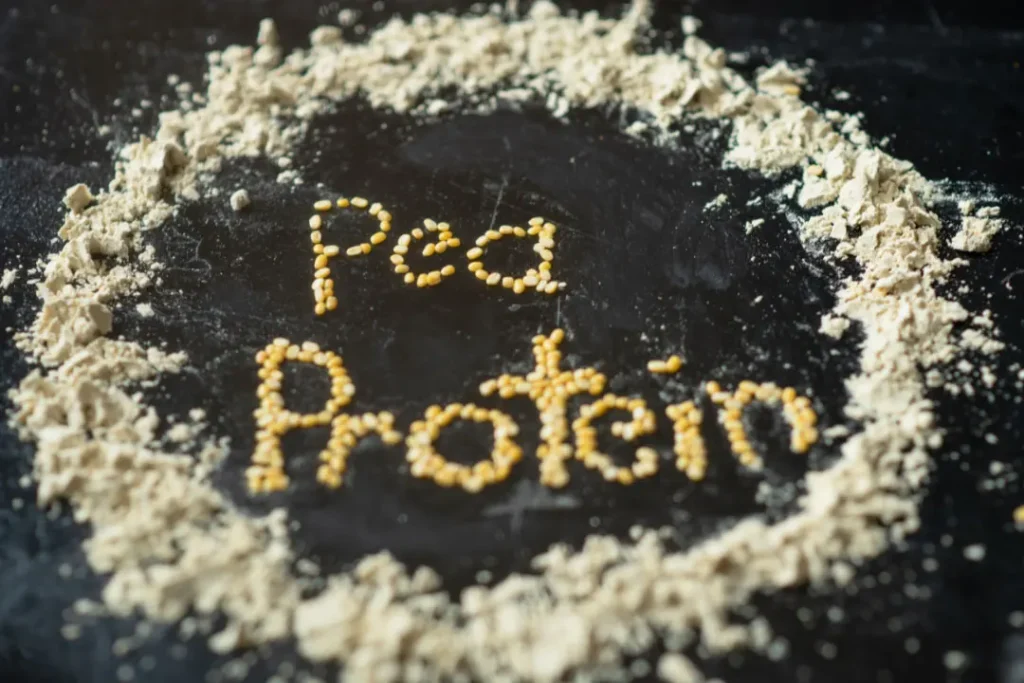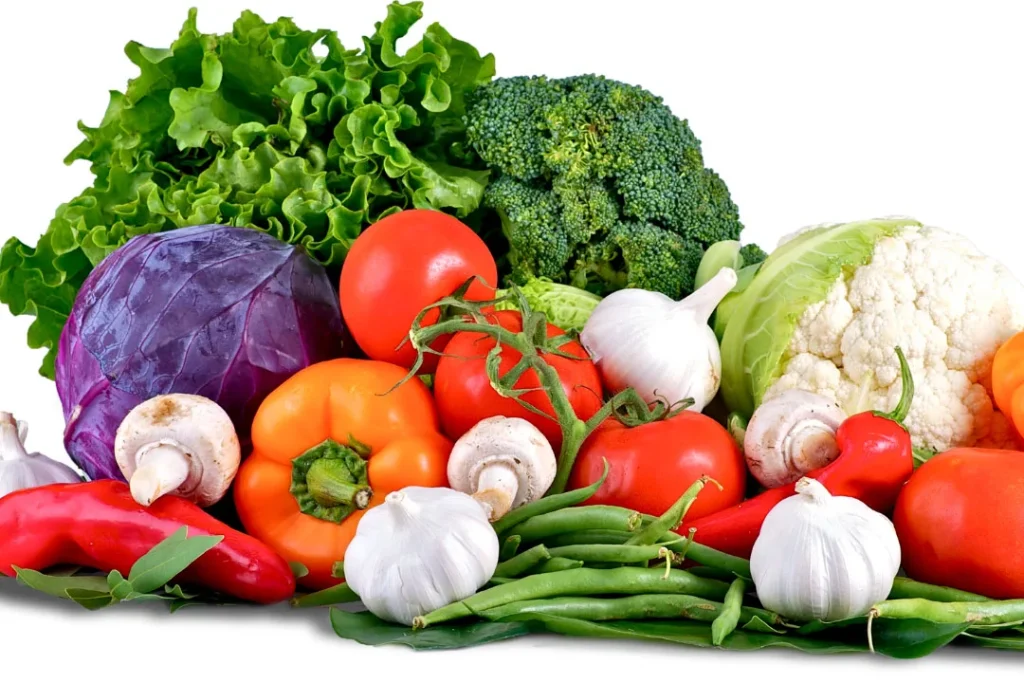Plant based diets are becoming more popular in the context of contemporary diets, sparking curiosity about novel protein sources. In particular, pea protein has become the subject of attention when it comes to non-meat-based sources of protein.
Pea protein is getting the attention of health-conscious people, athletes, and those who care about the environment. Read below to see all the benefits of plant based protein and how you can leverage them.
You May Also Like:
A GNC Vegan Protein Powder vs Nuzest Clean Lean Protein
Unlocking the Secret to Shedding Pounds: Surprising L-Lysine Benefits for Weight Loss
Eating Protein on a Plant Based Diet: Plant Based Protein and Its Nutritional Benefits is an original (BetterNutritionNews) article.
The rise of plant based protein
An increased understanding of health, environmental, and ethical issues is driving a transformation in the world’s food choices in favor of plant based diets. The rise of plant based protein has catapulted it to the forefront of nutrition discussions, stemming from this fundamental shift in dietary habits.
Alternative plant based protein sources are being investigated in response to the growing demand for sustainable food sources. The understanding that traditional animal-based protein sources incur significant environmental costs, including land usage, water consumption, and greenhouse gas emissions, has prompted this exploration. As a result, a variety of plant based protein sources—including legumes, nuts, seeds, and, notably, pea protein—have seen an uptick in popularity among health-conscious individuals and those who support environmental causes.
Pea protein, in particular, has emerged as a frontrunner in the realm of protein. Derived from yellow peas, this protein source boasts a robust amino acid profile, making it a valuable substitute for traditional animal-derived proteins. Its versatility extends beyond its nutritional value, as pea protein exhibits a low allergenic profile and can cater to various dietary needs.
Plant based protein:
The power of pea protein
Pea protein is a powerful plant based protein source that stands out for its remarkable nutritional profile and wide range of uses. Pea protein promotes muscle development and repair because it is high in necessary amino acids. Additionally, its soluble fiber content promotes digestive health and aids with cholesterol management. Pea protein suits a variety of dietary demands, including those with allergies or sensitivities, due to its low allergenic profile.
Pea protein has comparable bioavailability to animal-based proteins, ensuring efficient nutrient utilization for biological processes. In addition, branched-chain amino acids, which are essential for muscle function and workout recovery, are abundant in pea protein.
Pea protein is simple to incorporate into diets because of its many adaptable forms, including powders, bars, and mixes. Pea protein stands out as a nutritional powerhouse, reflecting both environmentally responsible and health-conscious ideals—whether improving post-workout nutrition or upgrading regular meals.

Health benefits of plant based protein
Including plant based protein in your diet has a variety of positive health effects, including improved muscle growth and illness prevention. Some of these advantages include:
- Weight Management: Diets high in protein make you feel full, which may curb overeating. Protein sources made from plants frequently have lower calorie densities than protein sources made from animals, allowing for filling servings with fewer calories.
- Muscle Building and Repair: Essential amino acids from pea protein are important for muscle synthesis and repair.
- Disease Risk Reduction: Lower blood pressure, cholesterol levels, and inflammatory indicators are associated with a diet high in plant-derived proteins.
- Sustainability and Longevity: Choosing plant based proteins is consistent with sustainable eating habits, as plant cultivation often demands fewer environmental resources than rearing animals.
Plant based protein in sports nutrition
Pea protein promotes efficient muscle recovery and growth post-exercise, making it great for athletes and those who prioritize fitness. Beyond its muscle-related benefits, its slow digestion rate ensures a steady release of energy, fueling endurance during extended activities.
Pea protein has been shown in studies to be compatible with a variety of training programs and has the ability to enhance muscle adaptation and repair across both strength and endurance-based activities. Due to its great digestibility, it reduces stomach discomfort during strenuous exercises, thereby improving the training experience as a whole.
This plant based protein is unique in that it may be readily included in meals, smoothies, or snacks before and after workouts. Pea protein is an important component of an athlete’s nutritional arsenal since it caters to a variety of dietary demands and has the potential to improve muscular performance. By embracing the scientifically supported benefits of pea protein, the fitness industry opens the door to improved performance and a competitive edge for athletes.

Incorporating plant based protein into your diet
Adopting plant based protein into your regular diet boosts nutritional intake while upholding moral and environmental principles. Beyond pea protein, a variety of protein sources, such as lentils, chickpeas, quinoa, tofu, and nuts, opens a world of culinary options. Each of these protein sources imparts its own distinct flavor and texture to dishes.
Consider carefully pairing plant based proteins with complementary meals to provide adequate amino acid profiles. For instance, to maximize your nutrient intake, mix beans with grains or nuts. Transitioning to plant based sources is made easier by simple substitutions such as replacing dairy milk with almond or soy milk and meat with tofu or tempeh.
Debunking plant based protein myths
The genuine potential of plant based protein sources often remains obscured by a number of myths in the field of plant based nutrition. It’s crucial to dispel these misunderstandings and highlight the facts that support the value and advantages of these important dietary components.
One misconception contends that the incomplete amino acid profiles of plant based proteins may reduce their nutritional value. However, a well-planned plant based diet provides a wide variety of protein sources that, when carefully mixed, produce comprehensive amino acid profiles. For instance, eating grains and legumes together helps ensure that all of the necessary amino acids are consumed, dispelling the myth of incomplete proteins.
Another myth asserts that animal-based proteins are better for developing muscle than plant based proteins. This notion, however, is not accurate. Leucine, a branched-chain amino acid that is essential for increasing muscle protein synthesis and repair, is present in significant amounts in plant based protein sources like pea protein.
Given their high fiber and nutritional content, some detractors question the ability of plant based protein sources to facilitate nutrient absorption. Contrary to popular opinion, plant based diets do not always make it more difficult for nutrients to be absorbed. In fact, the presence of both nutrients and fiber in these sources often synergistically enhances optimal nutritional absorption.

Looking forward:
Plant based protein and sustainability
The symbiotic relationship between plant based protein and sustainability becomes increasingly important as we look to the future. The negative effects of traditional animal husbandry on the environment have led to a movement toward more environmentally friendly food alternatives. A convincing option is provided by plant based protein sources, notably exemplified by pea protein.
The sustainability of pea protein is demonstrated by its low environmental impact. Pea farming uses a lot less land and water than conventional cattle farming, which lowers greenhouse gas emissions and preserves essential resources. This is in line with the worldwide drive for sustainable methods aimed at mitigating the impact on the environment.
The potential for the development of plant based protein technology is bright. The manufacturing, flavor, and texture of these protein sources are continuously improved through ongoing research and innovation, resulting in an ever-growing selection of enticing and healthy alternatives. The trajectory of plant based protein’s growth is set to accelerate as consumers become more aware of the relationship between their personal well-being and the health of the environment.
The Organic Sprouted Plant Based Protein Bars from Healthy Truth are a perfect example of how innovation and nutrition can coexist in this setting. These bars perfectly encapsulate the power of plant based protein while offering a tasty and practical way to embrace this dietary change. They are a testament to how easily high-quality nourishment can be included in our daily lives, meticulously crafted to align with ethical and environmental ideals.
Healthy Truth has set out on a path toward a more peaceful cohabitation with our world by embracing plant based protein and its sustainable core. The function of plant based protein assumes increased relevance as the reverberations of thoughtful dietary choices cascade through individual wellness and environmental preservation. Healthy Truth’s Organic Sprouted Plant Based Protein Bars epitomize the optimization of health while helping to create a greener planet, paving the way for a better and more sustainable future.
A greener future with plant based protein
Embracing plant based protein offers a pathway for individuals to enhance their well-being while aligning their diets with sustainable principles. The exploration of other sources, such as pea protein, challenges preconceptions and provides adaptable and nutrient-rich possibilities.
As plant based diets gain popularity, an understanding of the diversity of proteins and sustainability can help you make informed dietary selections. When it comes to prioritizing both health and the environment, pea protein offers an effective yet easy solution.

Further Reading For Additional References:
Cleveland Clinic: Everything You Should Know About Pea Protein
Runner’s World: What Is Pea Protein—and What Are Its Benefits for Runners?
Sports Illustrated: Pea Protein vs Whey: Which One Is Right for You?
American Institute for Cancer Research: Pea protein is everywhere, is it healthy?
National Library of Medicine: Pea proteins oral supplementation promotes muscle thickness gains during resistance training: a double-blind, randomized, Placebo-controlled clinical trial vs. Whey protein
Important Note: The information contained in this article is for general informational purposes only, and should not be construed as health or medical advice, nor is it intended to diagnose, prevent, treat, or cure any disease or health condition. Before embarking on any diet, fitness regimen, or program of nutritional supplementation, it is advisable to consult your healthcare professional in order to determine its safety and probable efficacy in terms of your individual state of health.
Regarding Nutritional Supplements Or Other Non-Prescription Health Products: If any nutritional supplements or other non-prescription health products are mentioned in the foregoing article, any claims or statements made about them have not been evaluated by the U.S. Food and Drug Administration, and such nutritional supplements or other health products are not intended to diagnose, treat, cure, or prevent any disease.



